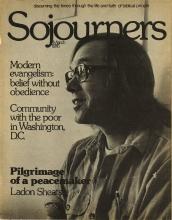With a broad perspective of the biblical philosophy of history in view, we now turn to look more closely at human creation, what it was meant to be, what it has become, and what God did through Jesus to restore and reconcile it. From this set of concepts, too, much light is shed on our public discipleship.
Humanity, Image of God
At the climax of creation God made men and women in his image, a finite representative of his on earth, summoned to exercise dominion over it and to live by grace and in love before their creator. We are no mere object of history; we are also history’s subject and agent. History is the sphere of our responsibility.
Created male and female, we are not abstract, isolated individuals. We are social beings, living in association with others. Human fulfillment is found in our solidarity with one another, and we must always be concerned for a more just society where this occurs.
The fact of creation guarantees the sacredness of human life against all threats to it. This has profound implications for a host of ethical issues today, from abortion to nuclear weapons.
In that all people are made in God’s image, they possess a fundamental equality that is not to be violated by any form of racism, chauvinism, or extreme nationalism.
Because we are charged with ordering our affairs and managing the earth before God, we may detect the original purpose and origin of government in the creation of man and woman as social beings. The state is not to be seen solely as an emergency measure, devised after the fall, to ward off the effects of sin.
Read the Full Article

